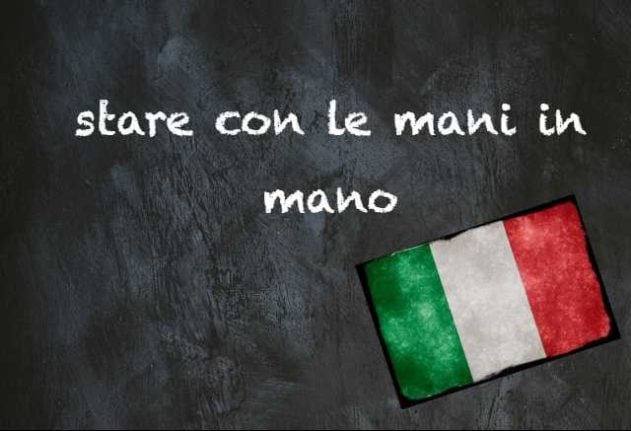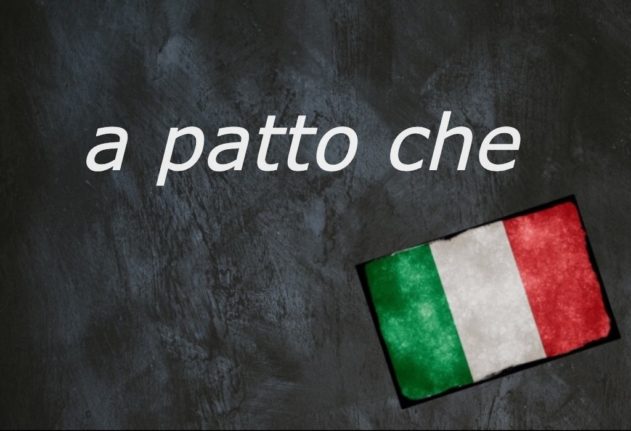In English, we ‘sit on our hands’ when we’re lazing around doing nothing; in Italian you stare con le mani in mano.
It literally means ‘to stay with your hands in your hand’, which gives you a pretty good visual picture of what’s involved (although does confusingly imply the existence of a third hand).
Non stare lì a guardare con le mani in mano, vieni ad aiutarci!
Don’t just stand there with watching, come and help us!
Se ne stanno con le mani in mano ad aspettare un miracolo.
They’re sitting on their hands waiting for a miracle.

You may be wondering why mano takes the feminine form (una mano, le mani) despite looking like it should be masculine with those o/i endings.
The answer is that it comes from the Latin manus, which is a fourth declension feminine noun, and that stuck as the noun evolved into its modern day Italian form.
In the Latin it’s also an anomaly, as almost all other Latin u-stem declension nouns are masculine in gender; but unfortunately we can’t consult with a contemporary Latin speaker to ask them why they made an exception of manus .
To stare con le mani in mano doesn’t necessarily imply laziness or a lack of willingness to take action – it could also mean you’re forced to be idle against your will because you have nothing to do.
In this situation it’s less a case of sitting on your hands and more one of twiddling your thumbs.
Non le piace stare così, con le mani in mano.
She doesn’t like having to sit on her hands like this.
Non possiamo semplicemente starcene con le mani in mano mentre gli altri cercano di trovare una soluzione.
We can’t just sit here twiddling our thumbs while the others try to find a solution.

If you find yourself sitting on your hands or twiddling your thumbs, try going through our Word of the Day archive and seeing how many Italian words and expressions you can memorise.
Do you have an Italian phrase you’d like us to feature? If so, please email us with your suggestion.



 Please whitelist us to continue reading.
Please whitelist us to continue reading.
Member comments